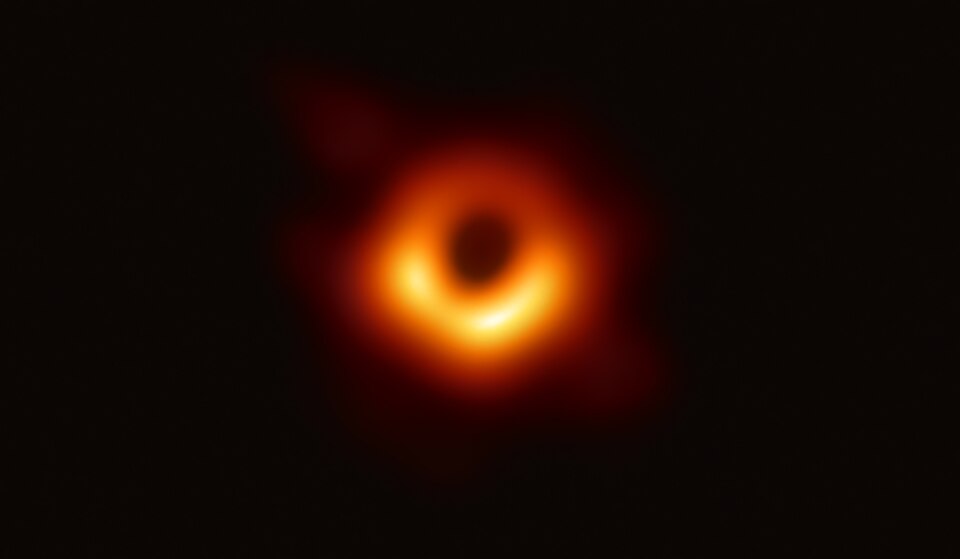
Why do black holes evaporate? Black holes evaporate because of something called Hawking radiation, which is where they lose energy when particles appear outside their event horizon.
Nobody knows how many black holes there are in the universe because they are black, and they are very difficult to see. They can only really be seen by the absence of light and by the effect they have on surrounding stars and planets. However, astronomers estimate that black holes are fairly common, and there are probably 40 quintillion of them in the observable universe. Just to give you an idea of how many that is, a quintillion is the number that comes after quadrillion, which comes after trillion. Black holes range in size, and there are thought to be supermassive black holes at the center of every galaxy. The one at the center of our Milky Way Galaxy has been observed, and it is called Sagittarius A.
Black holes form when a star collapses. Stars form from hydrogen gas and dust, and when they are big enough, their gravity creates stupendous pressure and heat in their core, which starts nuclear fusion. Once they have converted all of their hydrogen into helium, if they are big enough, they can convert the helium into carbon, then oxygen, neon, silicon, and iron. Each element gets heavier, and the star gets smaller and denser. When stars are creating energy through nuclear fusion, that energy counteracts the stars enormous gravity, and they stay in one piece. Once they get to the end of their lives, there is not enough energy coming out of the star to counteract its gravity, and massive stars can collapse. If the star is 20 or more times bigger than our sun, it will have enough mass to become a black hole. The size of the resultant black hole is dependent on how big the original star was. The largest observed black hole is Phoenix A, which is 100 billion solar masses. The smallest black holes are 3.8 times bigger than our sun.
Black holes are so dense that anything that goes into them cannot get out, including light. This is basically because the escape velocity from the surface of a black hole is faster than the speed of light. However, they do not suck things in. For something to get pulled into a black hole, it has to pass the black hole’s event horizon, which is the point where the black hole’s gravity is too great to escape. All of the matter that goes into a black hole becomes part of it, and the black hole constantly grows. A larger black hole can absorb more matter, and larger black holes grow more than smaller black holes.
Black holes do not just constantly grow, though. They also evaporate. They lose energy into space, and energy is mass, so as they lose energy, they slowly get smaller until they completely disappear. The energy they lose is called Hawking radiation. It is a little bit complicated, but it comes down to quantum field theory and the inescapable gravity of a black hole. In quantum field theory, particles can randomly appear anywhere, and there is always a particle and an antiparticle. These two particles recombine and instantly cancel each other out. When two particles appear on the event horizon of a black hole, one particle can get stuck in the black hole, which means they don’t cancel each other ou,t and the remaining particle heads off into space. When it goes, the surviving particle takes a little of the black hole’s energy with it. This is only an infinitesimally small amount of energy, but if this happens often enough, the black hole will lose all of its energy.
This is not a fast process. The smaller the black hole, the faster the process is because smaller black holes have more heat. The difference in temperature between small, hot black holes and space makes it much easier for them to lose Hawking radiation. Larger black holes are much colder, only a little bit above absolute zero, and they don’t evaporate much. Larger black holes take in more matter and energy from the surrounding space than they can lose. But this will not last forever because the universe is getting colder and all of the matter is spreading out. At some point, there will be no matter left for the large black holes to absorb, and they will stop growing. The universe will also have cooled down to almost absolute zero, which is colder than the black holes, and the large black holes will start to lose their energy through Hawking radiation. It is believed that the largest black holes will have completely evaporated in 10,000,000,000,000,000,000,000,000,000,000,000,000,000,000,000,000,000,000,000,000,000,000,000,000,000,000,000,000,000,000,000,000,000 years. And then there will be nothing. This is the heat death of the universe. And this is what I learned today.
Sources
https://en.wikipedia.org/wiki/Black_hole
https://www.sciencealert.com/hawking-radiation
https://as.cornell.edu/news/hawkings-black-hole-theorem-observationally-confirmed
https://www.livescience.com/researchers-calculate-how-many-black-holes
https://en.wikipedia.org/wiki/Sagittarius_A*
Image By Event Horizon Telescope – https://www.eso.org/public/images/eso1907a/; JPG saved from full size TIFF and converted with maximum quality level 12 in Photoshop 2019., CC BY 4.0, https://commons.wikimedia.org/w/index.php?curid=77916527
